
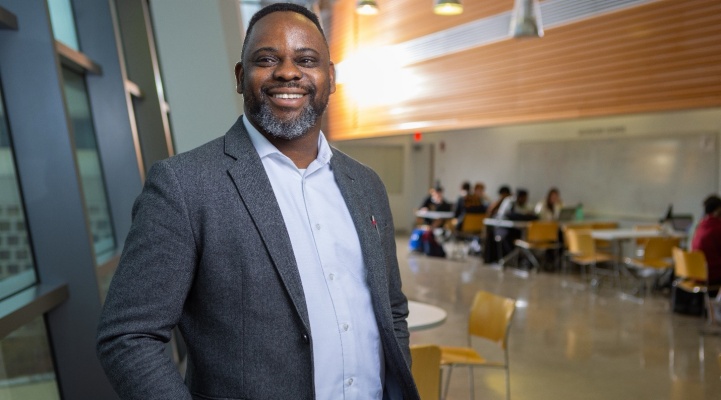
Professor Ndubueze Mbah hopes to reform school systems in the Enugu State of Nigeria using learning models honed in UB’s Experiential Learning Network. Read more about Mbah's reform work. Photo: Douglas Levere
In this Issue:
Support your Department
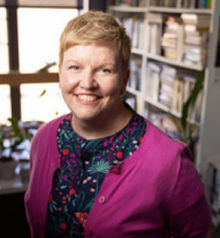
Carole Emberton, UB History chair
Hello, alums!
I am pleased to be taking over the duties of department chair from Kristin Stapleton. So far, being the new chair has been a bit of a whirlwind. There’s so much to learn. Honestly, nothing in my career so far has prepared me for this job, but I’m looking forward to the challenge. I’m happy to report that UB has enrolled a record number of new students this fall, and we are excited to welcome these eager minds into our history classes. As always, thank you for your support of our department. I hope to see some of you at our events this coming year.
Best Wishes,
Carole Emberton
Department Chair
Professor Jeanette Jones to give annual Wozniak Lecture
On April 10, 2026, Professor Jeanette Jones will give the annual Wozniak Lecture. Her talk will be based on her forthcoming book, America in Africa: U.S. Empire, Race, and the African Question, 1847-1919. Professor Jones is currently Happold Professor of History and Ethnic Studies at the University of Nebraska. She received her Ph.D. from our department in 2003.
Second Annual Wozniak Lecture – April 4, 2025
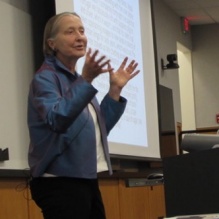
Professor Valerie Hansen presents the second annual Wozniak Lecture. Photo by Jenna Labbie
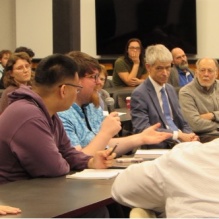
Students and faculty attending the Wozniak Lecture. Photo by Jenna Labbie
Yale Professor Valerie Hansen delivered an informative and lively lecture titled “The Asian Age of Exploration", which focused on the extensive Asian trade networks that dominated world commerce in the centuries before the expansion of European power. An appreciative audience gathered on April 4, 2025, to learn from one of the foremost experts on the Silk Road and maritime trade between the eighth and the fifteenth centuries.
The annual Wozniak Lecture is funded by a generous donation from the Wozniak family.
UB Historian Oversees Comprehensive Educational Reform in Nigeria
UB faculty member Ndubueze Mbah has been chosen commissioner of education for the Nigerian subnational Enugu State, taking on a mission of reforming the state’s elementary and secondary school systems using learning models honed in UB’s Experiential Learning Network as educational guides.
Mbah’s task presents a chance for dramatic, comprehensive improvement in basic education for a key section of Nigeria, Africa’s most populous nation. Mbah’s immediate future will be what he calls “the litmus of development in the Global South” for about 228,800 Nigerian students.
“As it is, I find myself lighting the torch of an education revolution focused on experiential learning in the continent,” says Mbah, associate professor of history, following his appointment championed by the governor of Enugu State. “And UB has made it possible.”
Two UB Historians Organize Conference on Medicine, the Body and the Senses: Asian Perspectives

Group photo of the participants in the conference on Medicine, the Body, and the Senses. Professor Yan Liu is front center in the light blue collared shirt; Professor Genie Yoo stands to his right, wearing a light gray sweater.
The UB Asia Research Institute (ARI) hosted a conference on Medicine, the Body, and the Senses: Asian Perspectives, April 11-12, 2025, in 10 Capen Hall (the Buffalo Room). The conference featured a keynote address by Judith Farquhar, Max Palevsky Professor Emerita of Anthropology and of Social Sciences at the University of Chicago, and 22 paper presentations by international scholars in many different fields.
The theme for the conference was developed by Yan Liu, associate professor of history at UB and an ARI affiliated faculty member, and Genie Yoo, assistant professor of history at UB (at that time, postdoctoral fellow at Dumbarton Oaks).
“The conference put a spotlight on the important work of UB professors related to medicine, culture, and society in Asia and lay the groundwork for significant future research and publication opportunities for UB faculty and conference participants,” said Nojin Kwak, Vice Provost for International Education.
Participants addressed how understandings of the body and its various senses in premodern and modern contexts shape healing outcomes, religious experiences, gender relations, and sociopolitical processes. The conference also explored social, political, religious, and cultural contexts that frame perceptions of sensorial experience and embodied practice.
Taking a multidisciplinary approach and paying attention to local features and transregional knowledge exchange, the conference fostered fruitful conversations that advance crucial Asian perspectives on the body and the senses and offer fresh insights on the particular Asian societies under study.
Yan Liu said, “We are excited to organize a conference that gathers a stellar group of scholars by invitation and from the overwhelming response to our call for papers. We appreciate ARI’s generous support, which will foster a stimulating conversation on Asian medicine across time, space, and disciplines.”
Genie Yoo added, “We were absolutely delighted to organize this interdisciplinary conference for ARI, which attracted more than a hundred applicants from across North America, Asia, and Europe.
“It is unique in its sensorial approach to the study of medicine and in its engagement with every region of Asia. We’re grateful for the opportunity to bring such incredible scholars together at UB, and for the support and encouragement provided by ARI and the other sponsors,” Yoo said.
Medicine, the Body, and the Senses: Asian Perspectives was the second in an ARI annual conference series. The annual conferences draw on UB faculty expertise to convene international scholars who present new research on critical topics in the study of Asia and Asian diasporas.
The annual conference series, along with other ARI programs that promote faculty scholarship and cutting-edge research, strengthen UB’s position as a regional hub for Asia-focused research and teaching.
The conference was cosponsored by UB’s Asia Research Institute, Office of International Education, Departments of History, Anthropology, and Asian Studies Program in the College of Arts and Sciences, the Office of Global Health Initiatives in the School of Public Health and Health Professions, and the School of Pharmacy and Pharmaceutical Sciences.
Bruce Acker, Asia Research Institute
From Buffalo to Beijing: A UB Historian’s Experience
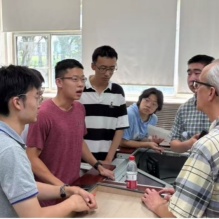
Professor Erik R. Seeman (right) and students in Beijing, summer 2025.
You might think that students who had to sit through a 2.5-hour lecture would take the fifteen-minute break to leave the room or stretch their legs. But there they were, not once but five days in a row, surrounding me during the break and eagerly asking me questions.
In June I returned to Beijing after six years to offer the same English-language mini-course I did in 2019. The topic was “America to 1763” and the location was Capital Normal University, an institution founded as a teacher’s college (or “normal school”), where many students still prepare to be educators.
UB’s late, lamented Confucius Institute used to have a relationship with CNU, which is how I originally made the connection. This time I worked directly with the CNU School of History to set up the one-week course.
At a time of declining humanities enrollments in the United States, I was impressed that 97 students signed up. Most were from CNU but about a dozen came from cities all over China. Reflecting CNU’s overall demographics, about two-thirds of the students were women.
For each of the five lectures I assigned a reading. Mindful that they were working in a non-native language, I kept the readings short, just a few pages each, more informational than argumentative.
My first surprise came at the very start of the week. After a three-sentence self-introduction in woeful Chinese, I switched back to English and asked if there were any questions about the day’s reading on the great pre-Columbian city of Cahokia. At most American universities this would be a “crickets” moment: uncomfortable silence as no one wants to seem overly eager.
Instead, hands went up. Not a roomful of hands, but three or four, and the questions set the tone for the week. They demonstrated an effort to grapple with the readings and – even more exciting to me – they emerged from knowledge and experiences different from my own. As a result the questions were fresh, incisive, and sometimes challenging.
At the start of that first lecture, one student asked, “Don’t archaeologists have to speculate more than historians who work with documents?” This question subtly undermined the authority of the assigned reading, which had glossed over the question of speculation and presented its points as uncontested facts. Throughout the lecture I kept coming back to this issue, pointing out moments of guesswork in my own presentation, and talking about how historians who work with documents do plenty of their own speculating.
My students were also willing to ask questions during the lecture, something I always encourage, often to no avail in a big room. As I was talking about Cahokia’s decline after 1250, a student who uses the English name of Samuel raised his hand. “Is it possible that Cahokia collapsed because the leaders were no longer able to administer the city effectively?”
I’m no expert on Cahokia but I’ve read several books and a dozen articles on the city. To my memory, none address that topic, which evidently was shaped by Samuel’s knowledge of Chinese history. Chinese dynasties have risen and fallen on their administrative capabilities. But scholars of Cahokia simply don’t think in terms of urban administration. Part of the reason is we lack the written sources for pre-Columbian North America that exist in great quantities to document Chinese governmental actions. But I think it also reflects an assumption that Native American societies were more impacted by environmental conditions than governmental strategies.
And so the week went, with good questions during lectures and then the daily scrum while we were supposed to be having a fifteen-minute break.
In the six years since I had been to Beijing, some changes were evident. China is now an almost entirely cashless society, which is wonderfully convenient but left me worried about the tightening grip of the surveillance state. The change that most impacted me, however, came from the U.S. side. In 2019 I brought a folder full of UB recruitment brochures and I spent the week encouraging students to study somewhere – anywhere – in the United States.
This time around I could not, in good faith, urge them to come to the U.S., given the President’s attacks on foreign students. A few, including Samuel, still expressed interest. If they do come, their enthusiasm will enliven whatever classes they take.
For now I will have to be satisfied that I was able to meet them, learn from them, and offer them a few insights about American history. As one student wrote on the CNU postcard he gave me as a parting gift, “From Buffalo to Beijing — your words stay.”
Erik R. Seeman, History Department
Mother – Daughter Contribution to the American Historical Review
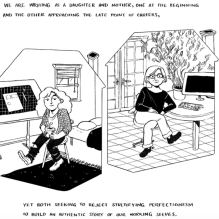
One frame from the visual essay "Embracing the Untamed Garden"
In fall 2025 Professor Claire Schen and her daughter Maddy Cherr published a visual essay called “Embracing the Untamed Garden” in the “History Unclassified” section of the American Historical Review.
The visual essay grew out of conversations during and since the COVID-19 pandemic about professional growth that suggested an unexpected convergence of creativity and research. Told equally in words and visuals, the essay focuses on shaping an authentic narrative of the professional self. The subject is the tension between risk-taking and growth on the one hand and the pressure for results and productivity on the other.
The essay appears in the first special issue of “History Unclassified,” a project devoted to the topic of mistakes. Maddy Cherr, an illustrator, created the images, and Professor Schen contributed the text to this meditation on risk-taking and professional expectations. The pair also recorded an episode of the “History in Focus” podcast of the American Historical Review.
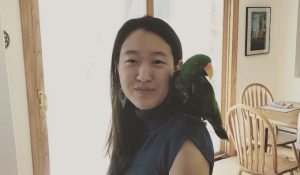
We sat down with Genie Yoo, a new professor in the Department of History, to interview her about her research, current projects and to tell us a little bit about herself, in addition to how she’s been adjusting to living in Buffalo.
What are your areas of interest in research?
In my current research, I’m really interested in the history of colonial botany and its relationship to commerce, medical traditions, and religions in Southeast Asia’s cross-cultural contexts. So, I’ve been exploring European and Indigenous exchanges of knowledge about plants and nature—for instance, spice plants like cloves and nutmegs—and their politics of value, as commodities in local and global trade and as significant objects in Indigenous and Islamic healing and rituals in the “spice islands” of eastern Indonesia.
Another area of interest is the history of translation. For instance, I’ve been fascinated by an eighteenth-century translation of Arabic-language erotica into vernacular Malay, which includes a list of aphrodisiacs for men. This is what made me interrogate the role of translation in understandings of sex, masculinity, the body, pleasure and pain, and surprisingly, Islamic understandings of the afterlife.
Relatedly, I continue to be drawn to the history of the Indian Ocean world. I happened upon two Arabic and Malay prayer books that were almost identical, but one was from Cape Town in South Africa and the other from Indonesia. Since then, I’ve found others, most notably from Sri Lanka. These far-flung sites were linked through Dutch, and later British, imperial networks. So, I’ve been working on an essay that traces the circulation of Islamic prayer books between Indonesia, Sri Lanka, and South Africa, with a focus on prayers of healing and protection in the context of enforced migration under the Dutch and British Empires.
I can keep going! History of ornithology and the environmental history of bird migration across some of the world’s busiest flyways that cut across East and Southeast Asia; of calendars and dictionaries in the context of Islamic conversion and scholarship in Indonesia; and of medical missionaries and medical humanitarianism in conflicts across Asia. But I should probably stop there.
What are your teaching interests? What will you be teaching this year? What new classes might you teach in the future?
My teaching interests are both broad and narrow, thematic and geographical. I am excited to teach about the global history of plants and empire, which includes history of medicine, the life sciences, and the environment; courses focusing on medicine, science, and empire, imperialism and colonialism, and global history; courses in Asian history (Asian civilization, Southeast Asia, or the Malay and Indonesian World); and perhaps a sweeping course on the history of Islam across the Indian Ocean.
I would also love to teach a seminar on the history of recipes as they pertain to medicine, science, and food, centering questions of professional, domestic, and gendered knowledge-making through experiment and craft. A dream come true would be to pair this with a lab, so we could actually experiment with historical recipes (I once took a seminar on the history of alchemy that did exactly this. Ask me if we managed to turn things into gold!). A seminar on the history of translation and empire would be fascinating; it would include histories of translating sacred texts, of philology, wordlists, and dictionaries, as well as of cultural and political diplomacy.
At some point, it’d be great to teach a lecture course on the history of information management—how historical actors dealt with “information overload,” which would include the history of the book, of accounting and business, and the history of archives, museums, and herbariums. A chance to teach about Southeast Asia in Southeast Asia would be incredible, too, especially since UB has a branch in Singapore!
This fall, I’m teaching HIS 301: Historical Writing. In the spring, one of the courses I’m teaching is a 400-level seminar called “Sugar and Spice: A Not So Nice History,” which will be a version of the plants and empire course I had in mind. It will touch on themes of global colonial botany and medicine, capitalism, plantations and the “plantationocene,” the history of labor, slavery and migration, race, gender, and class. I’ll also teach HIS 507: Asian Core in the spring, with some focus on Southeast Asia, alongside South and East Asia.
How did you become interested in these research and teaching topics?
Many of these topics emerged and solidified from my engagement with primary sources. Early modern natural histories and herbals, local books of medicine with recipes for healing, manuscripts with translations of sacred—and somewhat profane—texts, imperial archival documents, and oh-so-many wordlists and a dizzying array of herbarium specimens. It all sounds very specific, but I tend to think that each text and object holds within it a whole world of other lives lived to the full—or all too often, cut too short. It’s that feeling one gets, of falling down a rabbit hole. I have a hard time crawling out of them. Ultimately, I go where the sources lead me.
How have you liked Buffalo – both the university and the wider community – since moving here?
I haven’t been able to explore too much of Buffalo just yet! I moved here towards mid-August and started prepping and orienting myself to teach right away. At some point, I will have to visit Niagara Falls. Right before moving here, I visited the National Gallery of Art in D.C., and I had one goal: to see Frederic Edwin Church’s majestic painting of the Falls. I have a very bad habit of traveling to cities and countries and failing to visit important historic sites there. It’s become a joke in the family. Like the time I went to Jordan for intensive language study but turned down a chance to visit Petra—you know, one of the seven wonders of the world—because I wanted to stay in and study my flashcards. I regret it to this day. Anyway, I promised my family that I will visit Niagara Falls, with witnesses and photographic proof!
I really like it here so far! Everyone I’ve met is so incredibly nice, and there is a really supportive and welcoming atmosphere. My next-door neighbor not only gives me great recommendations for restaurants but also leaves me homemade chicken soup and potted organic basil in front of my door. It is wonderful to live in a city known for good neighbors!
Can you tell us something about yourself that we won’t find on your CV or on the website?
In my past life, I thought I was going to become an ethnomusicologist of West Africa. When I was an undergraduate, I spent a summer in a village in the Ewe region of Ghana, training in music, dance, and language. I also attended quite a few funerals, too, because I was interested in rituals and local understandings of death. But everything changed when I heard traditional Javanese gamelan music, called Karawitan. Under a scholarship, I ended up taking a year and a half of leave to train with a master musician named Pak Trustho in Yogyakarta, on the island of Java. I learned to play the kendhang, the drum. I haven’t played in a very long time, but occasionally, when I sit in front of my drum, my hands remember.
Faculty Retirement: Liana Vardi, Professor
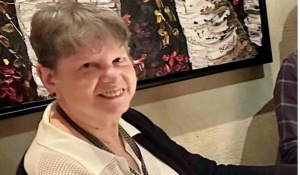
On May 6, the department celebrated the career of Professor Liana Vardi, who retired after 31 years of service at UB. A scholar of early-modern France, Professor Vardi ranged widely in her interests, academic and otherwise.
Those who worked with her remember how she approached every teaching assignment, invited speaker, and job search as an opportunity to probe a new topic, to read deeply and to learn a new field of inquiry. Although a specialist of early-modern agrarian history, she mentored graduate students working in a range fields and taught many wonderful courses on a variety of topics. Perennial favorites among the undergraduates were the History of Paris, Voyages of Discovery and, more recently, a seminar on Vichy France.
Vardi’s scholarly work blended the materialist sensibilities of Annales school with new cultural and intellectual approaches. Her approach yielded innovative and insightful work on people who left scant historical record—poor rural women in medieval France—as well as those who were well-known in their day—figures like the eighteenth-century economist François Quesnay. She has written two single-author monographs and is now working on a third dealing with the culture of gardens and natural history among the early-modern French nobility. She has also published numerous articles and reviews, including three articles of original research in the highly selective American Historical Review—possibly an all-time record!
Throughout her career, Vardi modeled the best traditions of professional citizenship. She was tenaciously attentive to department governance, to her colleagues’ scholarly work and to curricular issues, always with an ethic of debate in the search for enlightenment. Outside UB, her passion for non-academic literary genres led her to start the online revue, “Fiction and Film for Scholars of France,” for which she drew contributors from her Rolodex of distinguished historians and cultural luminaries. The 59 issues of its 11-year run (2010-2021) continue to form a precious resource for those who take professional and personal interest in French culture. Vardi’s retirement is a loss to UB and to the historical profession, but her example will serve as inspiration to subsequent generations.
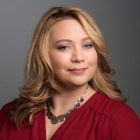
Jenifer Barclay spent the 2024-25 academic year in Ithaca as a faculty fellow at Cornell University’s Society for the Humanities. She drafted, workshopped and presented portions of her second book project, “Between Two Worlds: A Black Disability History of Southern Education from Emancipation to Integration,” to Cornell faculty and taught a seminar on Deaf and disability history in the United States for advanced undergraduate and graduate students.
With colleague Stefanie Hunt-Kennedy (U. of New Brunswick), Barclay also co-edited a substantial collection of original scholarship, Cripping the Archive: Disability, History and Power, published by the University of Illinois Press in August 2025. With twenty chapters and thirty-six contributors, the collection includes work from historians, archivists and museum specialists that draw on the methodology and practice of cripping to uncover disability in contested archives, grapple with ableism and the politics of erasure and explore ways to build inclusive archives accountable to, and centered on, disabled people and disability justice.
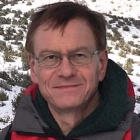
Professor, received the Senior Award for Excellence in International Exchange from the American DAAD (German Academic Exchange Service) Alumni Association. Princeton University Press published a revised and expanded, English-language version of his Alexander von Humboldt: A Concise Biography. In addition, Professor Daum published several other articles on Humboldt, his politics and his concept of science, including “A ‘Temple of Liberty’? Alexander von Humboldt and the French Revolution” (Annals of Science) “Humboldtian Science and Humboldt’s Science” (History of Science), and “Ambiguity as Principle: Alexander von Humboldt in the Revolution of 1848” (Humboldt in the Net).
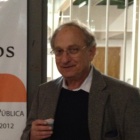
Michael Frisch is featured in “Changing Paths of Academic Lives,” by Harvey J. Graff, an eminent historian of literacy. This is an unusual collection of very informal autobiographical essays by diverse historians who have had distinctive paths through academic careers, organized in cohorts across 4+ decades. Frisch contributed the lead-off essay, which includes anecdotes and reflections about his experiences in Buffalo and at UB from 1970 on, in two departments and then in consulting work following early retirement. The book is available now, free, via the online link below; hard copy expected in a few months. Frisch will be very interested in responses from those who “were there” AND those who’ve come after, faculty and students. Check out: Changing Paths of Academic Lives ... 1960s to 2020s and Beyond
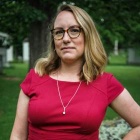
Sarah Handley-Cousin has a new edited volume out, written and edited along with her colleagues in the Nursing Clio Editorial Collective. The volume includes short, accessible essays on the health, gender and sexuality centered around the theme of reproductive health history. The volume was published by Rutgers University Press in September 2025 in the “Critical Issues in Health and Medicine” series.
This is the first print book for the Nursing Clio Editorial Collective, who have been working together to publish accessible essays on the intersections of health, gender and history since 2012. Handley-Cousins has been the executive editor of NC since 2021.
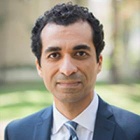
Assistant Teaching Professor, is pleased to share the publication of his new book, Mantle of the Sufi Kings (Cambridge University Press), which explores a longstanding historical puzzle: how a small mystical order rose to become one of the most powerful states of the early modern Middle East. The rise and consolidation of Safavid rule in Iran marked a turning point in the history of the Islamic world. In this study, he examines how ideals of loyalty, social cohesion and power dynamics rooted in Sufi thought underpinned the Safavid community’s remarkable ascent.
Once in power, the Safavid dynasty became a patron of art, literature and architecture, transforming Iran into a flourishing cultural empire that influenced both the Ottoman and Mughal worlds. By tracing the origins and evolution of the Safavid order, Mantle of the Sufi Kings offers fresh insights into how religious and sociopolitical forces merged to create a powerful Shi’i state—an empire whose legacy endures today, with Iran remaining the world’s only Shi’i-majority nation. This work proposes a new interpretation of Iran’s early modern history, while also shedding light on contemporary debates about religion and politics in the Middle East. Khafipour looks forward to discussing his findings!
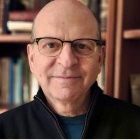
Hal Langfur spent June in Rome, working in the Archivum Romanum Societatis Iesu for a project on racialization in early Brazil. This archive is the main repository of Jesuit letters, quarterly reports and other manuscripts documenting the order’s extensive missionary activities among Brazil’s coastal Indigenous peoples in the sixteenth century.
An air-conditioned respite from the record heat wave gripping Rome, the archive offered access to an extraordinary array of texts written by the first Jesuits active in the Americas. He found the insights and eloquence of these bold Portuguese and Spanish missionaries seductive, as they sought to comprehend cultures radically different from their own. He had to remind himself that the ethnographic information they acquired and conveyed to the world was never neutral. They wished to understand these diverse peoples not to help sustain them in their beliefs and practices but to convert them more efficiently into productive Christian workers.
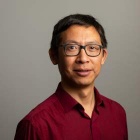
Yan Liu co-organized a conference with the incoming History faculty Dr. Genie Yoo, titled “Medicine, the Body, and the Senses: Asian Perspectives,” supported by the Asia Research Institute (ARI). The conference took place on April 11 and 12, 2025 on UB North Campus, which convened 23 scholars from Asia, Europe, and North America. Yan and Genie are currently preparing the publication of a special issue out of this conference. In addition, Yan Liu published a survey article titled “Fragrant Attraction: Aromatics in Premodern Chinese History” in History Compass at the end of 2024.
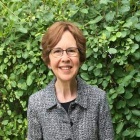
Gail Radford is enjoying retirement. She misses teaching, but appreciates the increased opportunity to write and to participate in political work. She and her sociologist husband co-authored an article titled “Statebuilding for Active Citizenship: Structuring Institutions of Public Education in Antebellum New York State,” just published in the interdisciplinary journal Studies in American Political Development. Her chapter “The Myth of American Hostility to Public Enterprise, and Why It Matters,” will appear in the edited volume Unwinding Privatization to be published by MIT Press in 2026.
In addition to these academic pursuits, she has been active in the effort to pass legislation, developed by DSA (Democratic Socialists of America), that would create an entity to develop and manage a large, non-commercial, permanently affordable housing sector in New York State. Surprisingly (but agreeably), she finds that much of the leadership of this current campaign is familiar with her 1996 monograph, Modern Housing for America, which described and analyzed a similar movement in the era of the Great Depression.
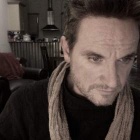
Michael Rembis is happy to share that his new book, Writing Mad Lives in the Age of the Asylum, was published with Oxford University Press in December 2024. It has received enthusiastic support and positive reviews. UB is now in our second year of the Mellon-funded “Communities of Care” project, for which Rembis is a co-principal investigator. The Communities of Care team is working with a broad range of people with disabilities, as well as care workers, to co-create stories of care in this time of increasing scarcity and violence. If you are interested in learning more about the project or telling your own story, please send Professor Rembis an email.
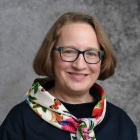
Claire Sche has a new position in Undergraduate Education as Associate Dean for Undergraduate Research and Scholarship. She will lead development of an overarching vision to grow undergraduate research at UB, broadening opportunities for undergraduate students to engage with research, scholarship and related experiential activities across the University. She has a visual essay co-authored with the illustrator (and her daughter), Maddy Cherr, called “Embracing the Untamed Garden”. A long-awaited contribution to MoEML (the Map of Early of Early Modern London) on the parish of St Stephen Walbrook is coded and will appear soon. See the crowd-sourced academic digital project MoEML. She still continues to teach in the department part-time and hopes to see more projects soon from students like the recent digital story-telling, online exhibitions, and accordion books students have created in her classes.
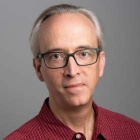
Erik Seeman taught 97 undergraduate and graduate students at Capital Normal University in Beijing in June 2025. He offered a mini-course, “America to 1763,” that consisted of five 2.5-hour lectures. Longer than ideal, but students were enthusiastic. Then in August he returned to Erfurt University in Germany, where he spent a Fulbright semester two years ago, to participate in a symposium, “The Cemetery at Night.” In both places, his hosts went to great lengths to showcase their local food and drink specialties. China won the food contest; Germany the beer competition.
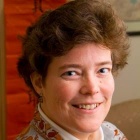
Kristin Stapleton has begun service as Chair of UB’s Faculty Senate, which is addressing a number of important issues facing UB today, including those arising from the changing federal landscape, developments in AI and the announcement by President Tripathi that he will step down from his position in summer 2026. She visited Germany in summer 2025 to participate in a conference of the Global Urban History Project in Berlin and to meet with a current research collaborator in Dresden. She is organizing a conference to be held in Buffalo in September 2026 on fictional representations of WWII by Asian writers. In fall 2025 she is enjoying teaching “China and the World” again, in a class that includes many pre-service teachers and history majors.
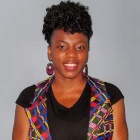
Ogechukwu Williams published Birth Politics: Colonial Power, Medical Pluralism, and Maternity in Nigeria in August 2025 with Johns Hopkins University Press. The first comprehensive history of childbirth in Nigeria, Birth Politics chronicles the evolution of three distinct birthing institutions—biomedical hospitals, faith-based delivery homes and traditional midwifery—and how their intertwined experiences in a colonial and post-colonial setting shaped the outcomes of a century-long struggle to control childbirth. At the Annual Africa Conference in Spring 2025, she was awarded The Funmilayo Ransome-Kuti Prize for Distinguished Public Activism and Service in recognition of her contributions through her scholarship and community works to highlighting marginalized voices and working towards the progress and welfare of women in the society. This award is named after one of Africa’s leading female nationalist and educational activists.
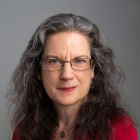
Victoria W. Wolcott spent much of the last year directing the Gender Institute and working as a co-PI for the “Communities of Care” Mellon grant. She also submitted two articles related to her new book project, “The Embodied Resistance of Eroseanna Robinson: Athleticism and Activism in the Cold War Era.” Wolcott was also honored to receive the 2025 SUNY Chancellor’s Award for Excellence in Scholarship and Creative Activity.
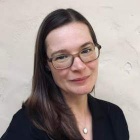
Katherine Zubovich had a productive and fun time in June and July 2025 working in archives and libraries in Finland and Estonia. She is researching a new book on resource extraction in the Baltic under Soviet occupation. Besides sitting in archives, she also took a road trip along the northern coast of Estonia to visit two key sites of her research, a brick factory and cement factory (which had its own museum). Her earlier article on how Soviet architects navigated the postwar Stalinist ideological campaign (known as the ‘Zhdanovshchina’) was published in Slavic Review.
New Faculty Book Gallery
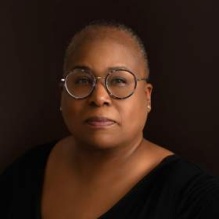
Robin Mitchell, Endowed Professor and Director of Graduate Studies
Message from the Director of Graduate Studies
Hi to all of you. I write to you as I’m beginning my second year as DGS in the Department of History. So far it’s been a ride, but a glorious one, and I have to say that it is such a great pleasure working with the current graduate students. So here’s a quick rundown on what we’re doing and hopefully ways that you can get involved.
We just graduated quite a large cohort of masters students and a smaller one of doctoral students. Attaching the picture from graduation. This isn’t everyone but it was a glorious day.
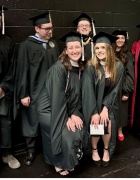
History MA and PhD graduates with former chair Kristin Stapleton
Our incoming cohort of 12 students, both MA and PhDs, are fantastic. I think they are finally settling in a little bit. I know that many of you can remember what your first year of graduate school was like. Even though mine happened 100 years ago, I remember the first year being a bit terrifying. But so far they’re all rock stars.
We’ve upgraded the lounge, slightly, with brand new chairs, mailboxes, rugs, coffee maker, and candy jar. It feels pretty cozy.
The Graduate History Association is in full swing, and they’re planning the Plesur conference for spring.
As alums, there are so many ways to help our current students. One way is via mentorship, another is through gifts to the scholarship and research funds. If you have time or the inclination and would like to support our current students, we would be thrilled.
Which leads me to what I hope I can ask you all to help us with: if you have news, about what you’re doing, or about what’s in store for you, I hope that you will send it along so we can share it with the department. It’s always such a pleasure when we find out that you all are well out there in the world. So I hope you give us the opportunity to share in the joy, and even the challenges happening in your land.
And remember, once you’re a part of our department, you’re always a part of our department. So please drop us a line and let us know how you’re doing!
Best,
R
Robin Mitchell
Director of Graduate Studies
Graduate Student News
Graduate Awards
- Outstanding MA Thesis Prize, 2024-2025: Olivia Schneggenburger, “‘Empress of Access’: Examining the Role of Rose Mary Woods in the Political Career of Richard Nixon”
- Milton Plesur Memorial Scholarship: Damilola Fagite
- Pratt Scholarship: Kevin Kostner, Andrew Pothier
- Reilly Tirone Fellowship: Damilola Fagite
- Shannon Scholarship: Andrew Pothier
- Clifton Yearley Award: Angela Gallagher, Beth Pryor
- Dr. Keith F. Otterbein Award for War and Peace Studies: Beth Pryor
- Milton Plesur Summer Funding: Damilola Fagite, Mitchell K. Jones, Kevin Kostin, Chijioke Ngobili
- Milton Plesur Sixth-year Fellowship: Jenna Labbie
- Rockefeller Archive Center Research Stipend and Larry J. Hackman Research Residency: Andrew Pothier
- Humanities Institute Advanced PhD Fellowship: Beth Pryor (2024-2025) and Shu Wan (2025-2026)
Conference Presentations and Publications
Angela Gallagher presented a paper on “Suffragette Eugenicists” at the North American Conference on British Studies in Fall 2024.
Damilola Fagite presented a paper on “Colonial Health Propaganda: Public Health Campaigns on Maternal and Infant Welfare in Southwestern Nigeria” at the Lagos Studies Association International Conference in summer 2025. Her article manuscript, “Yoruba Perception of Sopona (Smallpox), Colonial Medical Intervention, and Taiwo Shango,” has been accepted for publication in The Journal of African Cultural Studies.
Fernando Jauregui presented a paper on “The Battle of the Body and the Soul: Jesuit Exorcism in the Tupi Society in Sixteenth Century Brazil” at the Sixteenth Century Society Conference, Toronto, Fall 2024.
Mitchell K. Jones presented several papers, including “Eben-Ezer’s Transnational Inspiration: The Transatlantic Pietist Communism of the Community of True Inspiration, 1829-1855” at the International Communal Studies Association Conference, Winter 2024. His review of Holy Food: How Cults, Communes, and Religious Movements Influenced What We Eat—An American History, by Christina Ward, was published in Communal Societies in Fall 2025.
Chijioke Ngobili presented a paper on “A Sensory History of the 1925 Feared Anticolonial Campaign Song of the ‘Dancing Women’ in Colonial Southeastern Nigeria” at the African Studies Association conference, Fall 2024. His “The ‘accidental ethnomusicologist’ and his lifelong fight for studies in African popular music: a conversation with John Collins at 80” was published in The Journal of Musical Arts in Africa in fall 2024 and his review of Romancing the Gullah in the Age of Porgy and Bess, by Kendra Hamilton, will be published in fall 2025 in the Journal of African American History.
Andrew Pothier’s “A Night at the Gardens: Class, Gender, and Respectability in 1930s Toronto (Review)” was published in The Journal of Sport History in summer 2024.
Beth Pryor presented a paper on “Women and the 18th Century Gun Trade” at the Colonial Society of Massachusetts Graduate Student Forum in summer 2025.
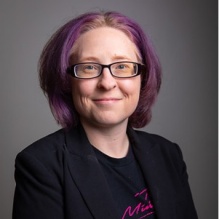
Cari Casteel, Director of Undergraduate Studies.
Message from the Director of Undergraduate Studies
What a year it has been for our undergraduate program! First, I would like to thank my colleague Andreas Daum for his excellent leadership of the undergraduate program these past few years and for making my transition to this position seamless.
The History BA program is thriving. Our combined degrees, BA/MA in Social Studies Education (UB Teach), BA/JD History/Law, and BA/MA History/School Librarianship, are all growing rapidly as well. In May, we honored our 75+ graduates and awarded more than 25 students with departmental scholarships. We also recognized two students, Fiona Serrano and Matt McGloin, for outstanding honors thesis projects.
The fall semester began with a welcome mixer for our new students, and to say the room was packed would be an understatement. It was exciting to see the vibrant future of our program.
For the fourth consecutive year, our honors program enrollment is in double digits, and they are all working on amazing research topics. I look forward to sharing the accomplishments of this year’s cohort.
The student-run History Undergraduate Association is beginning its third year. They meet every week to discuss history, play trivia, and explore historical sites. They have some exciting events on the horizon, including a hiking trip, a movie night, and a trip to the Buffalo History Museum.
Speaking of events, in October, we will have our fourth annual Fall Fire Pit Mixer. Each year, this event gives our students an opportunity to chat and mingle with professors and each other. Last year, over 80 students attended.
Over the last year, a number of our students were able to get out in the community and do the work of historians. Hunter Schoenhardt interned with Preservation Buffalo, and Samantha Emke spent the summer working in the Heinz History Center in Pittsburgh. This year, we are striving to find more hands-on research opportunities for our students. If you have suggestions or connections, please let us know.
I am looking forward to another amazing year!
Cari Casteel
Director of Undergraduate Studies
Undergraduate Student News
Undergraduate Awards
- College of Arts & Sciences Outstanding Senior: Fiona Serrano
- Department of History Outstanding Senior: Nicholas Sarris
- Milton Plesur Scholarship: Armand Correnti, John H. Curtis-Braley, Lazar Gelfand, William Griffin, Brendan Reilly, Shania Salih, Victoria Tan, Juliana Yanik
- Joyce J. and John D. Milligan and Family Scholarship: Alyssa Abbass, Charles J. Bryant
- Milton Plesur Memorial Scholarship: Matthew McGloin, Khang Phan, Gemma Pfaff, Neil Turner II
- Bryan C Argo Memorial Scholarship: Paige Bedell, April Kabalan, Anna Parlato
- John T. Horton History Scholarship: Nicholas Sarris, Jack Thompson
- Bernice Shannon American History Scholarship: Paige Bedell, Eden Johnson, Lydia Johnston, Sean Brennan Spruck
- Norbert L. Fullington History Award: April Kabalan, Zachary Shannon
- Selig Adler Memorial Scholarship: Anna Parlato, Fiona Serrano
- Julius W. Pratt Memorial Scholarship: James O’Connor
- History Department Undergraduate Scholarship: Hunter Schoenhardt
- Dr. Edward L. Curvish, Jr. Award: Thomas Park
- Best Undergraduate Thesis Prize: Fiona Serrano, “Beneath the Hammer and Sickle: Women, Revolution, and Socialism.” Honorable Mention: Matthew McGloin, “‘Awash In Joblessness’: Deindustrialization and Neoliberalism in Buffalo, New York.”
- Best Undergraduate Seminar Paper Prize: Jack Thompson, “Reflecting Modernity: Entertainment in Weimar Germany and Bertolt Brecht’s The Threepenny Opera”
Other Undergraduate News
Nicholas (Nick) Sarris produced a fabulous StoryMaps project on Sogdians on the Silk Roads in Dr. Yan Liu’s “China and the World” course in fall 2024. He presented the project at the Undergraduate Conference in Medieval Studies at Binghamton University in April 2025. He was also selected to join the China-America Student Conference and spent three weeks in China in the summer of 2025.
A word from the Undergraduate History Association:
The Undergraduate History Association (UHA) is a group of history enthusiasts from all majors! We have a wide variety of students with diverse backgrounds, far outside the reaches of just the history department. We also have a wide selection of events, we play board games, Origins is a personal favorite of ours, jeopardy, heads-up, as well as many other trivia-based games. We host lectures from guest speakers. There are things for everyone to enjoy, regardless of your level of interest in history! We don’t require any serious commitments as we encourage students to attend meetings that interest them! We have some amazing events in the planning stages, and we look forward to sharing more!
Brennan Spruck
President of the Undergraduate History Association
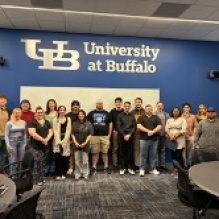
Phi Alpha Theta initiates, 2025
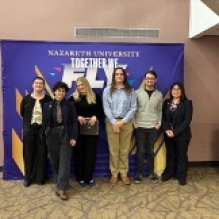
UB participants in the annual regional Phi Alpha Theta conference.
Phi Alpha Theta Update:
Phi Alpha Theta at UB continues to grow. This year, we inducted 25 new undergraduate and graduate members.
In April, six of our students traveled to Rochester to Nazareth University for the Western/Central New York Regional Conference. The conference was a rousing success. Fiona and Ash won awards! Finally, Fiona Serrano was one of three students to be awarded a Graduate Scholarship from PAT. Fiona is attending UCLA’s PhD program this fall.
I am excited about what is to come in 2026!
Cari Casteel
Phi Alpha Theta Chapter Advisor
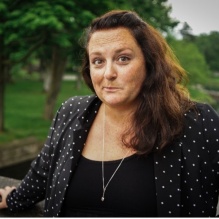
Alumna Profile – Dr. Averill Earls
Dr. Averill Earls is Associate Professor of History at St Olaf College in Northfield, MN. She earned her PhD in 2016. Her dissertation, “Queering Dublin: Same-sex desire and masculinities in Ireland, 1884-1950,” is the basis for her 2025 monograph Love in the Lav: A Social Biography of Same-Sex Desire in Ireland, 1922-1972 (Philadelphia: Temple University Press). Along with Sarah Handley-Cousins, Marissa Rhodes and Elizabeth Garner Masarik, she published Spiritualism’s Place: Reformers, Seekers, and Seances in Lily Dale (Cornell University Press/Three Hills, 2024). She is Executive Producer of Dig: A History Podcast, which is a narrative-driven, open access and accessible digital history project bridging the worlds of popular and academic history with an explicitly feminist perspective. She is a member of the Nursing Clio Editorial Collective, which in fall 2025 is publishing a collection of Nursing Clio material with Rutgers University Press:
Thank you to Dr. Earls for taking time from her busy schedule to answer a few questions.
What originally motivated you to pursue a degree in history?
I wouldn’t have picked up a History major as a college junior if it wasn’t for Paul Deslandes’ “Sex in Modern History” course at the University of Vermont. That course sparked my curiosity in a way that no other had before—and since I’d finished my requirements for my Political Science major with Middle Eastern studies minor, I figured, why not? I loved being a history student, interrogating the past and seeing how it has shaped the present. That history of sexuality course, more than any other I’d taken before that point, grounded my youthful passion for social justice, and that continues to be true.
How do you feel that these motivations continue to inform your life and work?
Now I hope that the courses I teach and the skills I help students develop will help guide them to their passion and help them better understand this (chaotic, sometimes bleak) world we live in. I’m also always learning. Being a historian is really coming to terms with the truth that we all know so very little, and the only choice is to keep asking questions, to keep reading, and to keep learning.
What do you feel was most valuable for you in your experience at UB?
My independent study on Irish history with Pat McDevitt, because I knew nothing about Irish history when I proposed a queer Irish history topic for my dissertation! I would not have made it this far without that course - so definitely the most valuable. My most valued experiences, though, were every graduate seminar, and the opportunity to sit down at a table with 5-15 other very smart individuals and have conversations about the books that we read every week. I even got to extend it an extra year, because Susan Cahn supervised me, Ellie George and Jake Newsome for our gender and sexuality reading list, and we’d meet regularly at cafes to discuss what we’d read. I miss that! Though I’ve held onto it a bit, as I’m in a book club (going on 12 years of meeting monthly) with two graduates of the UB MA program and 2 other UB PhDs, all of whom I met while a student.
What are you teaching this year? What are your favorite courses to teach?
In the fall I’m teaching my first-year seminar, “Love in History,” a survey on the History of Witchcraft, and a junior/senior seminar on Queer and Trans Lives. Over January term I’m taking my second cohort of students to Ireland for the month, for my “Love and Sex in Modern Irish History.” And in the spring I’ll run a Reacting to the Past-based course on the French and Haitian Revolutions. And lucky me—this line up includes all my favorite classes to teach!
Can you tell us something about yourself that we wouldn’t find in your CV?
I won a white ribbon for my Honey Gingersnaps at the Minnesota State Fair in 2024! Though I should put that on my CV, since it is certainly an important milestone in my “course of life.”
Alumni/Alumnae Updates
New degrees earned: Over the past year UB History BAs have completed graduate degrees. Sophie May and Jenna Marcus earned Masters degrees at Georgetown University. Danielle Redfield is finishing a JD at the University of Pittsburgh.
Those listed below sent us updates. We also received greetings from Scott DelleFave (BA ‘23), Richard Filipink (BA ‘92, PhD ‘04), Neal Fine (BA), Edward Frerks (BA ‘91), Thomas Hershey (BA ‘63), Eric Moses (BA ‘94), Travis Nemmer (BA ‘13), Michael Rechichi (BA ‘23, MA ‘25), and Dianne Spindler Wheatley-Giliotti (BA ‘64).
Alan Band, BA ‘84, earned an MS in Education and is teaching American History and Global History in New York City Public Schools.
Tommy Buttaccio, BA ‘14 and MA ‘16, left the New York Public Library and the Westchester Library System in December 2024 to join the University at Buffalo Libraries. He now serves as the User Services Supervisor at Lockwood Library and will also be teaching information literacy units for ENG 105.
Brian Campbell, MA ‘13, earned a PhD in History from the University of Illinois, Urbana-Champaign in 2021 and worked as a graduate career advisor at the University of Chicago. This past January, he began his current role as the Associate Director of Graduate Career Communities at Loyola University Chicago.
George Dalbo, BA ‘06, is Assistant Professor of Education and Youth Studies at Beloit College.
Patrick Dunagan, BA ‘70, retired after 40+ years in the automotive industry and now teaches part time in a junior high school in New Hampshire.
Rachel Eshenour, MA, is a high school assistant principal.
Paul Gandel, BA ‘65, earned his Ph.D. in Information Studies from Syracuse University, an M.A. in Library Science from the University of Wisconsin. He is Professor of Information Studies at Syracuse University. His teaching and research areas include the management of information technology systems, information management, leadership, information policy and the visualization of information. He previously served as the Vice President for Information Technology and Chief Information Officer (CIO) at Syracuse University. Before coming to Syracuse University, Gandel was Vice Provost and Dean of Libraries at University of Rhode Island. Prior to Rhode Island, Gandel was Associate Provost and Chief Information Officer at the Ohio University, Senior Director of Academic Computing and Associate Professor of Library Science at the University of North Texas, Researcher and Supervisor of the Computing Technology Group at Bell Laboratories, Head of Media Services at the State University of New York at Plattsburgh, and Director of the Research Library at the Visual Studies Workshop in Rochester, New York. He has also done work internationally as a Senior IT Consultant and Interim CIO for Singapore Management University.
Stuart Garrison, BA ‘68, used his concentration in Southeastern Asian History to participate in the post-graduate lab portion in South Vietnam courtesy of the US Army. Beautiful country but hostile natives.
Seymour (Sy) Gitin, BA ’56, is Dorot Director and Professor of Archaeology Emeritus at the W. F. Albright Institute of Archaeological Research in Jerusalem. He is pleased to report that his archaeological report on the excavations in Israel of the Philistine site of Tell Miqne-Ekron is in press and scheduled to appear in 2026 as a publication of the Harvard Museum of the Ancient Near East.
John Hajduk, MA ‘92 and PhD ‘95, retired in 2023 after teaching for 27 years at the University of Montana Western, attaining the rank of Full Professor (and following retirement, named Emeritus Professor). He also published a book (Music Wars: Money, Politics, and Race in the Construction of Rock & Roll Culture, 1940-1960) and several articles.
Jill Horohoe, MA ‘03, earned her PhD from Arizona State University, where she has served as a faculty associate since 2005, now teaching fully remotely for the university. She also teaches as full-time lecturer at Randolph-Macon College in Ashland, Virginia, and have received two Thomas Branch Excellence in Teaching Awards in the 5 years she’s taught there.
Mark Lempke, PhD ‘11, published a chapter titled “Swansong: Jimmy Carter’s Parting Gift of Faith: A Journey for All” in The Literary Legacy of Jimmy Carter, edited by Mark West and Frye Gaillard.
Qiong Liu, PhD ‘22, is assistant professor at the Virginia Military Institute. She returned to UB in fall 2025 to give a talk on her research for the Asia Research Institute.
Ling Ma, PhD ‘16, teaches in the history department at SUNY Geneseo; she won a campus-wide, student-nominated teaching award; and she was promoted to associate professor. She has also been bouldering, and that is a lot of fun.
Donald Maricle, BA ‘70, graduated as a history major but entered the life insurance business and quickly got his securities license and started a financial advisory firm called CNM capital resources Inc., which he still runs today.
Louis Masur, BA ‘78. recently published A Journey North: Jefferson, Madison and the Forging of a Friendship (Oxford University Press, 2025), his tenth book. None of them would exist had it not been for the incredible mentorship he received from the department nearly 50 years ago.
Shannon Mattice-Nieters, MA ‘21, is a secondary social studies teacher in the Rochester Central School District, mostly teaching 8th and 9th grade history. She is also enrolled in the EdD program for Teaching and Curriculum at the University of Rochester.
David McCaskey, MA ‘17, successfully defended his dissertation and achieved a PhD in History from the University of California, Riverside, and have just begun his first full-time teaching position at SUNY Old Westbury in its History and Philosophy Department.
Dean Pavlakis, MA ‘00 and PhD ‘12, has retired as a tenured professor of Modern European and African history from Carroll College in Helena MT, and now have the status of emeritus professor at Carroll. He returned to Buffalo is teaching at both UB and Canisius University when mutually convenient.
Vikki Pryor, BA Magna Cum Laude ‘75, is delighted to celebrate this year in particular, since I achieved my BA in History at UB 50 years ago! She shares her well wishes and encouragement to current and recent graduates to let you know that, from her perspective, you have made an excellent choice in choosing history as a major area of study. Over the last 50 years, her memories are clear. UB’s History department and excellent professors demanded serious study and discipline, while instilling intellectual curiosity and excitement about an accurate historical record and its importance to humankind. This has made an indelible but permanent impact on her thinking, her work, and her life. She adds “Thank you, UB, and well wishes to many more years of impactful history graduates!”
Alexandra Rosenlund, BA and JD ‘25, started a new position at Mura Law as a law clerk recently. In her first team meeting two trivia questions regarding East Asian History came up, so never assume you won’t use the knowledge and skills you learned getting your undergraduate degree in history. They are always relevant.
Ilaria Scaglia, MA ‘06 and PhD ‘11, published a volume, co-edited with Archivist Valeria Vanesio (University of Malta) and entitled Archives and Emotions: International Dialogues Across Past, Present, and Future (Bloomsbury, 2024), which won the prestigious 2025 Waldo Gifford Leland Award of the Society of American Archivists for “superior excellence and usefulness in the field of archival history, theory, or practice.”
Beth Slazak, BA ‘93, is currently VP of Curiosity 2 Create, an NPO striving to help K-12 teachers incorporate more curiosity, critical thinking, and creative problem-solving into their curriculum.
David Strittmatter, PhD ‘18, has been promoted to Associate Professor of History at Ohio Northern University.
Bruce W. Thiel, BA ‘68, is retired and playing lots of golf and traveling.
Michael Tyrpak, BA ‘06, is a financial advisor. Since 2014 he has served on the Board of Trustees (with nearly four as President) of the Buffalo Niagara Heritage Village (formerly the Amherst Museum), a local history museum.
Sarah Wack, BA ‘22 and MA ‘24, recently started a new position as the LEAD Coordinator for Leadership and Development in the Student Engagement Office at UB!
Dan Wallace, BA ‘14 and MA ‘16, received his PhD in history from the University of Southern California in 2024, with a dissertation titled “Merchants of Conquest: Commodity Capitalism and Indian Policy in the Gilded Age.” He is currently an American Conservation Experience Mellon Humanities postdoctoral fellow with a project titled “Gender in Michigan’s Copper Country: Redefining the Keweenaw’s Industrial Frontier.” He is working closely with Keweenaw National Historic Park to produce scholarship that benefits the park and public.
Stephanie Wozniak, BA ’21 and MA ‘23, was hired as the Learning and Engagement Coordinator at Buffalo Toronto Public Media in summer 2025.
Thank you for your support of the Department of History! With the support of alumni and friends, we can access vital resources to enhance our department and provide support for students, research projects and programs. We are grateful for your generosity.
You can support your department and help to provide for our students by making a gift online.
If you prefer to make your gift by check, please make your check payable to the University of Buffalo Foundation, write “Department of History” in the check memo line, and send it to:
University at Buffalo Foundation
Box 730
Buffalo, NY 14226-0730
For questions or more information on making a gift of securities or including the History Department in your estate plans, please contact:
Michelle Burger
Department Administrator
537 Park Hall
Buffalo, NY 14260-4130
(716) 645-8400
mlb@buffalo.edu
You will always be a part of UB! We want you to stay connected and get involved by:
- Attending alumni events and programs
- Mentoring UB students
- Attending career events with students
- Recruiting prospective students as a UB Admissions Ambassador
- Connecting with an alumni chapter in your area
- Giving to UB and making an impact on students
- Following UB, the College of Arts and Sciences, and the Department of History on social media
- To get involved, visit the Alumni page or email UB-CollegeAlumni@buffalo.edu.

